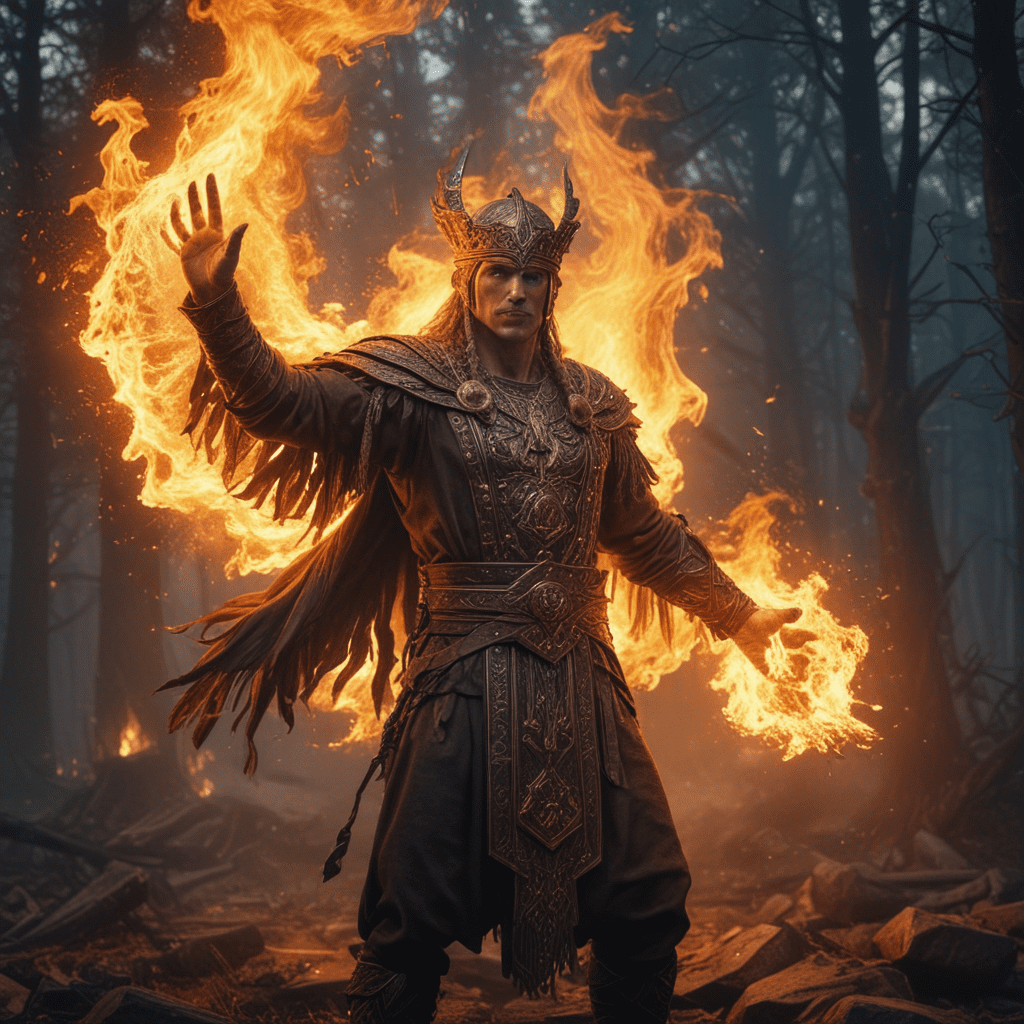Slavic Mythology: Beings of the Fire
Fire holds a profound significance in Slavic folklore, deeply entwined with the rhythms of life and the sacred powers of nature. From gods and goddesses to mythical creatures and elemental spirits, Slavic mythology is replete with beings associated with the transformative power of fire.
Svarog: The God of Fire and Forgecraft
Svarog, the supreme god of fire, is revered as the patron of blacksmiths and the master of all that is forged from metal. His celestial forge is believed to be located in the heavens, where he crafts heavenly bodies and harnesses the primal forces of fire. Svarog's symbol, the anvil, represents the power of creation and transformation through the mastery of fire.
Zorya: The Goddess of Dawn and Twilight
Zorya, the ethereal goddess of dawn and twilight, is depicted as a beautiful maiden who opens the gates of heaven each morning and closes them at dusk. Her golden hair and rosy cheeks symbolize the warm glow of the rising and setting sun. Zorya's connection to fire stems from her role as the guardian of the heavenly hearth, from which the sun and moon draw their radiance.
Ognevik: The Slavic Fire Elemental
Ognevik, the playful and mischievous fire elemental, is believed to reside in hearths and fireplaces. Portrayed as a small, winged creature with glowing eyes, Ognevik loves to dance and flicker among the flames, bringing warmth and comfort to the household. However, if disrespected or angered, Ognevik can turn destructive, setting fires and causing chaos.
Kupala: The Slavic Mid-Summer Night Festival and its Fire Rituals
Kupala Night, celebrated on the summer solstice, is a joyous festival honoring the sun, water, and fire. Bonfires were lit to purify and ward off evil spirits, and people gathered around them to sing, dance, and engage in traditional rituals. Jumping over the bonfire was believed to bring good fortune and fertility.
Perun: The Thunder God and his Relationship with Fire
Perun, the mighty thunder god, is closely associated with fire. His lightning bolts were seen as celestial fire, bringing both destruction and renewal to the land. Perun was also believed to have forged the first fire on Earth and taught humans the art of fire-making.
Firebirds and Phoenixes in Slavic Mythology
Firebirds, mythical creatures with vibrant plumage and glowing tails, are symbols of rebirth and transformation. Similar to the phoenix in other mythologies, the firebird was believed to consume itself in a fiery blaze before rising from its own ashes.
Domestic Spirits and their Connection to the Fire Place
In Slavic folklore, various domestic spirits were believed to reside in or near the hearth and fireplace. Domovoi, the guardian of the household, watched over the family and protected them from harm. Pechnik, a mischievous spirit associated with the stove, could bring both good and bad fortune to the household.
Fire Demons and Malevolent Entities
Slavic mythology also includes tales of malevolent fire demons and entities that could cause destruction and harm. Ogненный Змей (Fire Serpent) was a fearsome creature believed to dwell in forests and bring droughts and wildfires. Kikimora, a mischievous female spirit, was said to cause household fires and other disturbances.
FAQs
-
Who is the most important Slavic god associated with fire?
Svarog, the god of fire and forgecraft, is the most prominent Slavic deity associated with fire.
-
What are the fire purification rituals practiced in Slavic mythology?
Bonfires were lit during festivals like Kupala Night to purify and ward off evil spirits. People would also jump over the bonfire for good fortune and fertility.
-
Are firebirds and phoenixes the same in Slavic mythology?
While both are mythical creatures associated with fire and rebirth, they are distinct entities. Firebirds are depicted with vibrant plumage and glowing tails, while phoenixes are often associated with the sun and its cyclical nature.
-
What is the significance of fire in Slavic domestic life?
Fire was essential for warmth, cooking, and protection in Slavic households. Domestic spirits like Domovoi and Pechnik were believed to reside in or near the hearth, playing a role in family well-being and household harmony.
